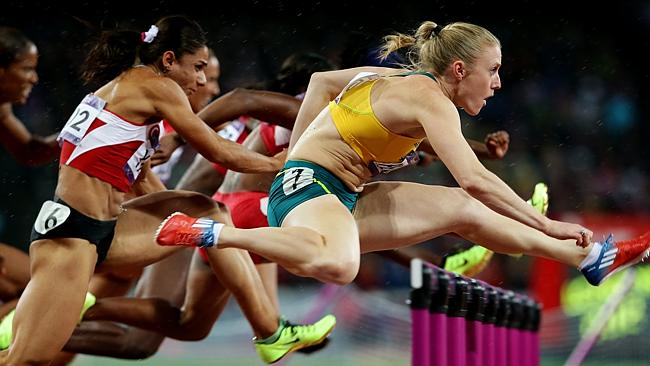Is there an event of any kind that better represents our universal reverence of excellence than the Olympic Games?
If the ten videos below are any indication, the answer is an emphatic no.
So join us as we celebrate ten of the most defining moments in all of Olympic history.
JESSE OWENS
BERLIN, 1936
1936, and though World War II is still three years away, Nazi propaganda has taken hold of Germany, laying the foundation for the horrors to come. For all of this, when American track and field athlete Jesse Owens arrived in the country, he was cheered just as enthusiastically as any of the national competitors. The crowd knew he was brilliant, regardless of the colour of his skin.
Owens would win four gold medals for the 100m sprint, 200m sprint, 4 x 100m relay, and the long jump. The latter came thanks to the advice of his adversary, German star Lutz Long.
JAMAICAN BOBSLED TEAM
CALGARY, 1988
While this moment comes from the Winter Olympic Games, it’s too good not to share.
Though the real story differs from the narrative told in Disney’s Cool Runnings, the importance of Jamaica’s presence on the bobsled track can not be underestimated. Here was proof that determination can defeat even the most stringent of obstacles, even if that means learning how to compete in a winter sport upon a tropical island.
MICHAEL PHELPS
BEIJING, 2008
With 22 medals across three Olympiad, swimmer Michael Phelps is the most decorated Olympian in history. He holds 18 gold (twice as many as 2nd place), eight of which were won at the 2008 Beijing Olympics, where he also broke the record for most first place finishes at an Olympic Games.
That it came as part of a team event reminds us that an individual’s achievement is often only possible through the network of support that helps them get where they need to be.
SALLY PEARSON
LONDON, 2012
In the 2008 Olympics, Pearson struggled to find form, but still managed silver. In 2012, she dominated.
Leading throughout qualifying, she went on to win the 100m hurdles and become the first Australian woman to win gold on the track since Cathy Freeman in an outstanding display of ability that saw a new Olympic record set.
CATHY FREEMAN
SYDNEY, 2000
Speaking of Freeman…
Her story is incredible. Her achievements awe inspiring. When Cathy Freeman took to her mark at the commencement of the 400m sprint at the Sydney Olympics, she brought the weight of an entire nation’s expectations with her.
On her victory lap, she carried both the Australian and Aboriginal flag on her back, a celebration of her history and a reminder of what she represented.
ABEBE BIKILA
ROME, 1960
https://www.youtube.com/watch?v=v1_umU-Bizs
An Ethiopian Imperial Guard, Abebe Bikila entered the Olympic Games when another competitor fell ill. By the end of his marathon (a total distance of around 42km, or 26 miles), his name would come to define greatness in the event.
Why? Because he completed it without wearing shoes. Sponsor Adidas had few pairs available when Bikila finally arrived in Rome, so he decided to go without. “I wanted the whole world to know that my country, Ethiopia, has always won with determination and heroism.”
JOANNIE ROCHETTE
VANCOUVER, 2010
February 25th, 2010. Canadian figure skater Joannie Rochette takes to the rink. It is an emotional moment; not just because she is a local star, but because her mother suddenly died only a few days earlier. She had been sick for years, but not told anyone. This fact surely played on Rochette’s mind until her performance began.
Ultimately, she would win bronze, and dedicate the accomplishment to her mother.
DEREK REDMOND
BARCELONA, 1992
British athlete Derek Redmond enter the 1992 400m sprint as one of the favourites, despite a history of injury. Unfortunately, fate would not be kind, and around 150m into the race, he tore his hamstring.
Not willing to concede, he rose and hobbled to the 200m line, before his father ran out to support him. Together, they crossed the finish line. Though it was certainly not the finish Redmond had hoped for, the act of love became one of the defining moments of the Barcelona Games.
KOREA MARCHES AS ONE
SYDNEY, 2000
https://www.youtube.com/watch?v=9P1_SWj7Fa0
Few moments encapsulate the Olympic Games’ ability to unify than at the Sydney event in 2000, when North and South Korean athletes marched under a single flag. It came as a reminder that peace between the divided sections of the nation was possible, even if it remained out of reach.
MUHAMMAD ALI LIGHTS THE CAULDRON
ATLANTA, 1996
https://www.youtube.com/watch?v=bn9u1lGJLao
The lighting of the cauldron is always one of the most iconic moments at the Olympic Games, but none were more iconic than Atlanta, 1996, when a 54 year old Muhammad Ali, suffering from Parkinson’s, lifts the torch to a crowd of spectators as a symbol of strength, fortitude, and celebration.
It’s what the Games are all about.

